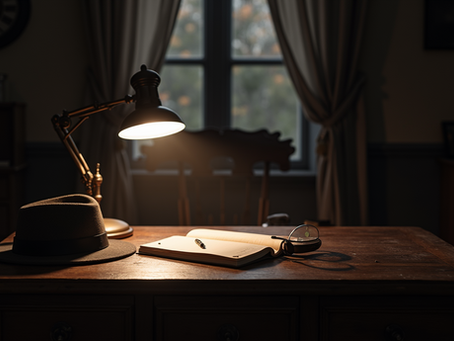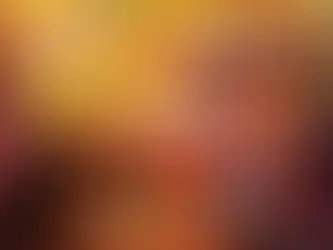top of page
Bryan W. Alaspa's writing injects the American spirit into the dark heart of our nightmares
Iain Rob Wright, Author of Ravage & The A-Z of Horror
Search


The Lasting Impact of Noir A Deep Dive into Its Influence on Modern Storytelling
Noir storytelling has left a deep mark on the way stories are told today. From shadowy streets to complex characters, noir elements have shaped books, movies, and TV shows in ways that continue to captivate audiences. This post explores how noir influences modern storytelling, revealing its presence across different media and why it remains relevant. What Defines Noir Storytelling? Noir is more than just a style; it’s a mood and a set of themes. Originating in the 1940s and 1
Bryan Alaspa
15 minutes ago3 min read


From Classic Whodunits to Contemporary Thrillers: Exploring the Evolution of Detective Novels
Detective novels have captivated readers for over a century, evolving from tightly plotted mysteries to complex psychological thrillers. This genre has continuously adapted to reflect changes in society, technology, and reader expectations. Tracing this evolution reveals how detective stories have grown richer and more diverse, offering something for every kind of mystery lover. The Birth of the Classic Whodunit Detective fiction began gaining popularity in the late 19th and
Bryan Alaspa
3 days ago3 min read


Debunking the Top Myths Surrounding Hard-Boiled Detective Stories
Hard-boiled detective stories have captivated readers for decades with their gritty settings, tough characters, and complex plots. Yet, many myths and misconceptions surround this genre, often shaping how people perceive these stories before they even dive in. This post explores and debunks some of the most common myths about hard-boiled detective stories, offering a clearer understanding of what makes this genre unique and enduring. Myth 1: Hard-Boiled Detectives Are Just To
Bryan Alaspa
4 days ago3 min read


Looking Back at 2025 - and ahead to 2026
Man, what a year 2025 turned out to be. It is tempting to go into politics here, but I struggle and strive to keep my blog and my website as free of politics as I can. I'll just say, the nightmare I feared coming into control of this country ended up being worse than I dared think. Despite the politics, for me, 2025 became a very interesting year for my fiction writing. I shifted a lot, and then shifted again, and have now fallen down into a rabbit hole I thought would be tem
Bryan Alaspa
5 days ago5 min read


Why We Trust Hard-Boiled Detectives Who Break the Law
On paper, hard-boiled detectives shouldn’t be trusted. They trespass. They lie. They rough people up. They destroy evidence. They ignore due process when it gets in the way. And yet readers trust them, often more than the police, judges, or institutions supposedly tasked with enforcing the law. That contradiction sits at the heart of hard-boiled detective morality and explains why the genre remains so powerful. Hard-boiled fiction doesn’t ask readers to admire legality. It as
Bryan Alaspa
6 days ago4 min read


Why Hard-Boiled Fiction Still Feels Honest in a World Obsessed With Twists
Modern crime fiction loves the twist. Unreliable narrators. Surprise killers. Shocking final chapters that reframe everything that came before. Entire marketing campaigns built around the promise that you’ll never see it coming . Twists aren’t inherently bad. When they work, they can be electrifying. But as twists have become expected rather than exceptional, something else has quietly happened: many crime stories have started to feel engineered instead of lived. That’s where
Bryan Alaspa
Jan 54 min read


Why Hard-Boiled Detectives Rarely Get Happy Endings, And Why That’s the Point
Readers coming to hard-boiled detective fiction for the first time often expect something familiar: the case solved, the villain exposed, the hero walking away into a brighter future. What they get instead can feel jarring. The detective survives, but he’s alone. The truth comes out, but it changes nothing.Justice is partial, compromised, or absent altogether. And that’s not a failure of the genre. It’s the foundation. In hard-boiled detective fiction, happy endings are rare
Bryan Alaspa
Jan 23 min read


Why Hard-Boiled Detectives Are Always Outmatched (And Why That Makes Them Compelling)
Hard-boiled detectives are never the most powerful people in the room. They don’t have unlimited resources. They don’t control institutions. They don’t command armies, corporations, or governments. More often than not, they’re broke, bruised, and one bad decision away from complete ruin. And that’s exactly why they work. In a genre filled with corruption, violence, and moral compromise, the hard-boiled detective archetype endures because he is always outmatched, and refuses t
Bryan Alaspa
Jan 13 min read


The Case Is Never the Point: Why Hard-Boiled Fiction Is Really About Character
On the surface, hard-boiled detective fiction looks like it’s about cases. There’s a crime. There are suspects. There’s a trail of lies, violence, and corruption that leads, eventually, to some version of the truth. That structure is familiar, comforting, and effective. But in the best hard-boiled fiction, the case is never the point. The case is a delivery system; a pressure chamber designed to reveal who the detective really is when everything else is stripped away. That’s
Bryan Alaspa
Dec 31, 20253 min read


Why Hard-Boiled Fiction Works Better as a Series Than Standalone Novels
Hard-boiled detective fiction has always been about consequences. Bruises linger. Trust erodes. Moral compromises stack up. The detective doesn’t walk away clean, physically or emotionally, and that damage is part of the appeal. Which is exactly why hard-boiled fiction works best not as a single, isolated story, but as a series. While standalone novels can deliver sharp, self-contained mysteries, the genre truly comes alive when readers are allowed to watch a detective change
Bryan Alaspa
Dec 30, 20253 min read


Pulp Heroes and Why They Transferred So Well to Movie Serials
When I was a kid, getting up to go to school, eating my breakfast cereal and trying to get motivated, I watched a Chicago show called Ray Rayner. On that show, he would play episodes of the classic Flash Gordon movie serial. It was cheap, and the spaceships looked help up by stings and sparks flew out of their behinds. And I loved every minute of it. Before blockbusters, before prestige television, before “cinematic universes,” there were movie serials; short, episodic advent
Bryan Alaspa
Dec 29, 20254 min read


How Spielberg and Lucas Kept Pulp Alive with Indiana Jones
When people talk about pulp storytelling, they often speak in the past tense. Something old. Something dusty. Something replaced by modern spectacle and digital excess. Then you rewatch the original Indiana Jones trilogy and realize something important: Pulp never died, it just got better cameras. With Raiders of the Lost Ark and its sequels, Steven Spielberg and George Lucas didn’t parody pulp adventure or modernize it beyond recognition. They faithfully translated the spi
Bryan Alaspa
Dec 26, 20253 min read


How Hard-Boiled Detective Fiction Evolved Without Losing Its Edge
Hard-boiled detective fiction has survived nearly a century of cultural change, technological upheaval, and shifting social norms, and it’s still sharp enough to cut. That kind of longevity doesn’t happen by accident. What makes hard-boiled fiction remarkable isn’t that it refuses to change, but that it adapts without surrendering its core identity. The trench coats, cigarette smoke, and shadowy alleys may evolve, but the genre’s edge, its moral tension, cynicism, and relentl
Bryan Alaspa
Dec 25, 20253 min read


The Lone Wolf Detective: Why This Archetype Still Works in a Connected World
In an era of smartphones, facial recognition, social media trails, and constant digital surveillance, the idea of a lone detective operating outside the system might seem outdated. After all, modern crime-solving often looks like teamwork, databases, and algorithms. And yet, the lone wolf detective remains one of the most enduring and compelling figures in crime fiction. From classic hard-boiled novels to modern noir-inflected series, readers still gravitate toward solitary i
Bryan Alaspa
Dec 24, 20253 min read


Hard-Boiled vs. Noir Fiction: What’s the Difference (and Why It Matters)?
Hard-boiled fiction and noir are often treated as interchangeable terms. They’re shelved together in bookstores, lumped together in reviews, and casually swapped in conversation. But while the two are closely related, they are not the same thing, and understanding the difference matters, especially for readers and writers who care about tone, character, and theme. At their core, both hard-boiled and noir fiction deal with crime, corruption, and moral ambiguity. But the way t
Bryan Alaspa
Dec 23, 20254 min read


The Most Insane Pulp Plots Ever Written
Pulp fiction was never about restraint. It was about grabbing the reader by the throat on page one and never letting go. Writers were paid by the word, deadlines were brutal, competition was fierce, and subtlety was a luxury no one could afford. The result? Some of the most outrageous, imaginative, and gloriously insane plots ever committed to print. While modern thrillers often strive for realism and plausibility, the pulps asked a different question entirely: How far can we
Bryan Alaspa
Dec 22, 20254 min read


The Villains Made It Pulp: Why Pulp Fiction Created the Greatest Bad Guys Ever
Pulp heroes were iconic, sure, masked vigilantes, hard-boiled detectives, globe-trotting adventurers who punched evil in the face and kept going. But here’s the uncomfortable truth pulp fans know deep down: The villains made it pulp. Without the insane masterminds, grotesque killers, mad scientists, crime lords, cult leaders, and apocalyptic madmen, pulp fiction would have been nothing more than tough guys throwing punches in empty rooms. What made pulp explode, what gave it
Bryan Alaspa
Dec 19, 20254 min read


How Pulp Writers Invented the Modern Action Hero
Before Marvel ruled the box office, before James Bond ordered his first martini, and before Indiana Jones ever cracked a whip, there were the pulps: cheap, rough paper magazines sold for pennies on newsstands between the 1920s and the 1950s. These weren’t highbrow literature. These were high-adrenaline, breakneck adventures powered by two-fisted heroes with nerves of steel and a tendency to leap off buildings if it solved a problem faster. Today’s action heroes, from Batman t
Bryan Alaspa
Dec 18, 20255 min read


The Women of Pulp: Beyond the Femme Fatale
When most people think of pulp fiction’s women, one archetype towers above all others: t he femme fatale; seductive, dangerous, clever, and often lethal. She walks out of the shadows, lights a cigarette, and destroys a man’s life with a single kiss or a single lie. The trope is so iconic that it practically defines noir for many casual readers. But here’s the truth: women in pulp were always more complex than that, and modern writers have taken that complexity even further. T
Bryan Alaspa
Dec 17, 20254 min read


The Best of New Pulp: Why Modern Heroes Keep a Classic Genre Alive
Pulp fiction has been declared dead more times than the hard-boiled detectives who inhabit its pages, and every time, it comes roaring back with a cigarette, a wisecrack, and a fresh case to crack. The truth is simple: pulp never really went out of style . It just shapeshifted. It evolved. It found new heroes, new writers, and new worlds to explore. Today, “New Pulp” is more than nostalgia. It’s a full-blown movement of authors, artists, and fans keeping the spirit of fast-p
Bryan Alaspa
Dec 16, 20255 min read
bottom of page
